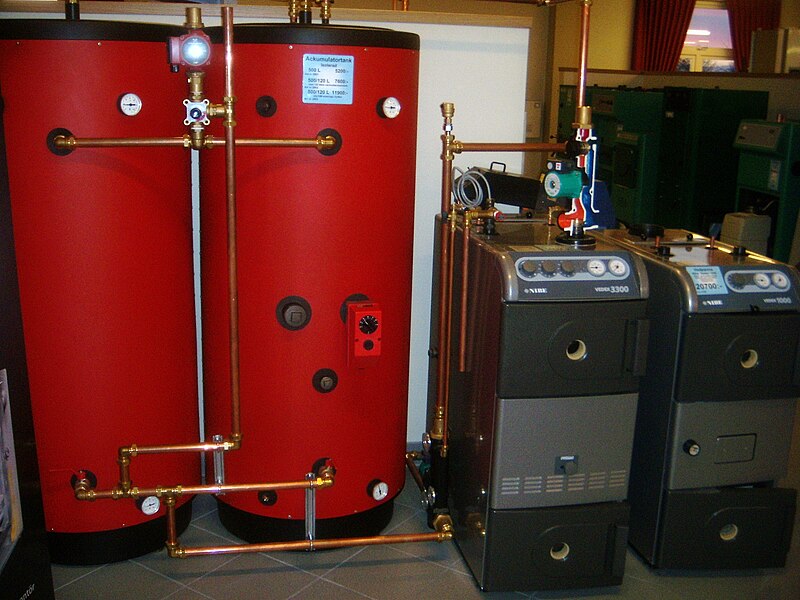
Water is an essential resource, and efficient storage plays a crucial role in ensuring its availability. Traditional water storage methods are being revolutionized by the advent of modern water tanks. Explore the informative guide at https://www.sunrisespecialty.com/selecting-the-right-well-water-tank-for-your-home for valuable insights on selecting the right well water tank, a crucial aspect in unleashing the power of modern water tanks. In this article, we will delve into the evolution, types, advantages, applications, and innovations in modern water tanks, guiding you through the process of choosing the right tank for your needs.
Evolution of Water Tanks
Historical Perspective
Water storage dates back centuries, with ancient civilizations using various containers to store and transport water. From clay pots to underground cisterns, the evolution of water tanks has been driven by the need for efficient water management.
Technological Advancements
Modern water tanks have come a long way from rudimentary containers. Advances in materials and manufacturing processes have led to the development of durable, efficient, and eco-friendly water storage solutions.
Types of Modern Water Tanks
Stainless Steel Tanks
Known for their durability and resistance to corrosion, stainless steel tanks are popular in industrial and commercial settings. They ensure water purity and have a longer lifespan compared to traditional materials.
Polyethylene Tanks
Polyethylene tanks are lightweight, easy to transport, and resistant to chemicals. Their versatility makes them suitable for various applications, including residential and agricultural use.
Fiberglass Tanks
Fiberglass tanks are known for their strength and resistance to corrosion. They are commonly used for underground storage and are ideal for areas with challenging environmental conditions.
Concrete Tanks
Sturdy and long-lasting, concrete tanks are a traditional yet reliable choice. They are often used for large-scale water storage and agricultural purposes.
Advantages of Modern Water Tanks
Durability and Longevity
Modern water tanks are designed to withstand harsh conditions and have a longer lifespan compared to traditional alternatives. This ensures a reliable and consistent water supply over an extended period.
Enhanced Water Quality
Materials like stainless steel and polyethylene contribute to improved water quality by preventing contamination and the growth of harmful microorganisms. This is especially crucial for applications like drinking water storage.
Eco-friendly Features
Many modern water tanks are designed with sustainability in mind. From recyclable materials to rainwater harvesting systems, these tanks help reduce environmental impact while serving their primary purpose.
Applications of Modern Water Tanks
Residential Usage
Modern water tanks are increasingly used in homes for domestic water storage. They provide a reliable source of water for daily needs, reducing dependency on external water sources.
Commercial and Industrial Applications
Industries rely on efficient water storage for various processes. Modern tanks cater to the specific needs of commercial and industrial applications, ensuring a steady supply of water for manufacturing and other operations.
Agricultural Purposes
Farmers benefit from modern water tanks for irrigation and livestock needs. These tanks offer a sustainable solution for managing water resources in agriculture.
Choosing the Right Water Tank for Your Needs
Consideration Factors
When choosing a water tank, factors such as material, capacity, and intended use must be considered. Assessing these elements ensures that the selected tank aligns with specific requirements.
Sizing and Capacity Guidelines
Proper sizing is crucial to meet the demand for water without excess or insufficient storage. Guidelines for calculating capacity based on usage patterns help users make informed decisions.
Installation and Maintenance Tips
Professional Installation Benefits
While some individuals opt for DIY installation, professional installation ensures that the water tank is set up correctly, minimizing the risk of issues in the future.
Routine Maintenance Practices
Regular maintenance is essential for the longevity of modern water tanks. Periodic checks, cleaning, and repairs, if necessary, contribute to optimal performance.
Cost Considerations
Initial Investment
While modern water tanks may have a higher initial cost, their long-term benefits, including reduced maintenance and increased lifespan, often outweigh the initial investment.
Long-term Cost Savings
The durability and efficiency of modern water tanks contribute to long-term cost savings. Reduced repairs and replacements result in overall lower lifetime costs.
Environmental Impact
Sustainable Practices in Water Storage
The environmental impact of water storage is a growing concern. Modern tanks address this by incorporating sustainable practices, such as rainwater harvesting and recyclable materials.
Green Alternatives
Innovations in materials and design have led to the development of eco-friendly water tanks, further minimizing the environmental footprint of water storage solutions.
Innovations in Water Tank Technology
IoT Integration
Some modern water tanks are equipped with IoT (Internet of Things) technology, allowing users to monitor water levels, quality, and other parameters remotely. This enhances control and ensures proactive maintenance.
Smart Monitoring Systems
Advanced monitoring systems provide real-time data, enabling users to optimize water usage and detect issues promptly. These systems contribute to efficient water management.
Challenges in Water Tank Usage
Common Issues Faced by Users
Despite advancements, users may encounter challenges such as leakage, contamination, or insufficient capacity. Understanding these issues helps users take preventive measures.
Solutions and Preventive Measures
Addressing common challenges involves proactive measures, from regular maintenance to choosing the right tank for specific applications. Awareness and preparedness are key to overcoming potential issues.
Future Trends in Water Tank Industry
Predictions for Advancements
Anticipate future trends in the water tank industry, from improved materials to enhanced smart technologies. Stay informed about upcoming developments shaping the future of water storage.
Integration with Smart Cities
As cities embrace smart technologies, the integration of water tanks into these systems becomes crucial. Explore how modern water storage aligns with the broader vision of smart cities.
Community Initiatives and Awareness
Promoting Responsible Water Storage
Community initiatives play a vital role in promoting responsible water storage practices. Explore campaigns and projects that focus on sustainable water management at the local level.
Educational Campaigns
Raise awareness about the importance of modern water tanks through educational campaigns. Inform the public about the benefits of upgrading water storage systems for a more sustainable future.
Conclusion
Modern water tanks represent a significant leap forward in efficient water storage. From residential use to industrial applications, these tanks offer durability, enhanced water quality, and sustainable features. As we navigate the challenges and embrace innovations in the water tank industry, it is essential to prioritize responsible water storage for a better, water-secure future.


